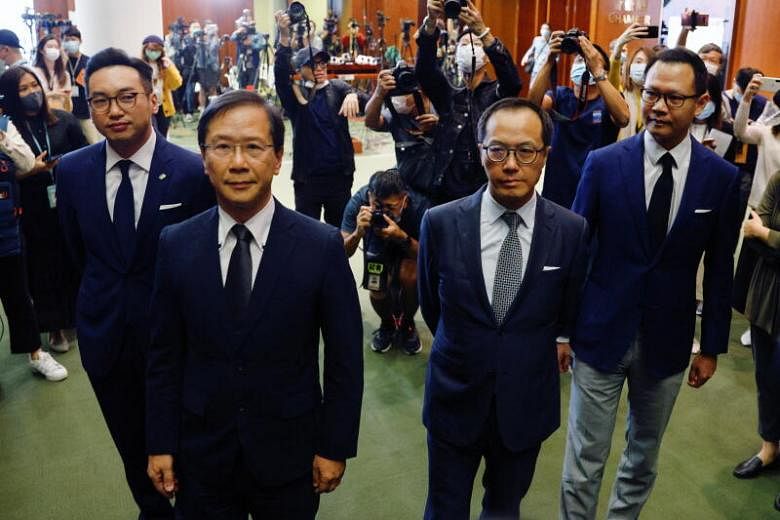Hong Kong yesterday disqualified four opposition lawmakers after China's Parliament passed a new rule requiring the city's legislators to be patriots and allowing the expulsion of those who fall short without having to go through the courts.
The remaining more than a dozen pro-democracy members in the Hong Kong legislature said later in the day that they would resign en masse following news of their peers' disqualification.
Q: What does the new Chinese law say?
A: The resolution passed yesterday by China's top legislative body - the National People's Congress Standing Committee (NPCSC) - stipulates that lawmakers should be disqualified if they support Hong Kong independence, refuse to acknowledge China's sovereignty over the city, ask foreign forces to interfere in its affairs, fail to uphold the Basic Law or pledge allegiance to Hong Kong, or in any other way threaten national security.
Q: Why was the rule imposed?
A: The decision came after long-drawn frustration in Hong Kong's pro-Beijing circles over opposition lawmakers' filibustering and delay tactics to obstruct legislation from being passed. The move is "conducive to the long-term peace and stability, as well as prosperity and development of Hong Kong", said NPCSC chairman Li Zhanshu.
Q: Who are the four lawmakers disqualified?
A: The four unseated lawmakers - Mr Alvin Yeung, Mr Kwok Ka Ki and Mr Dennis Kwok of the Civic Party, and Mr Kenneth Leung of the Professionals Guild - are among 12 who were earlier barred from standing in a legislative election that has since been postponed to next year. The group had called on US officials to sanction those responsible for alleged human rights abuses in Hong Kong.
Q: How many opposition members are there in the Hong Kong legislature?
A: Sixty-two lawmakers currently sit in the city's 70-seat legislature, including 19 from the opposition camp and two pro-democracy independents. The pro-establishment camp occupies 41 seats, one short of a two-thirds majority.
Q: What does all this mean for Hong Kong?
A: The disqualification of the four lawmakers and subsequent resignation of the remaining pro-democracy members, if it goes through, will render the chamber without any opposition voices, turning it into a rubber-stamp legislature. The development is likely to fuel concern in the West over Hong Kong's autonomy as promised under the "one country, two systems" principle.

